By Gail Hairston, Amy Jones, and Kody Kiser
The University of Kentucky Alumni Association presented its 2013 Great Teacher Awards to six recipients last night at a recognition dinner, followed by an appearance at Rupp Arena’s center court during halftime of the South Carolina vs. UK basketball game.
The recipients are:
• Karen Badger, associate professor, College of Social Work
• Roberta Dwyer, professor, College of Agriculture
• Samuel Franklin, assistant professor, College of Medicine
• John Grove, professor, College of Agriculture
• Armando Prats, professor, College of Arts and Sciences
• Gerald Smith, associate professor, College of Arts and Sciences
Started in 1961, the Great Teacher Award is the oldest continuous award to recognize teaching at UK. The nominations are made by students. Selection of the award recipients is made by the UK Alumni Association Great Teacher Awards Committee, in cooperation with student organizations Omicron Delta Kappa and Mortar Board. Great Teacher Award recipients each receive a citation, an engraved plaque, and a $2,000 cash award.
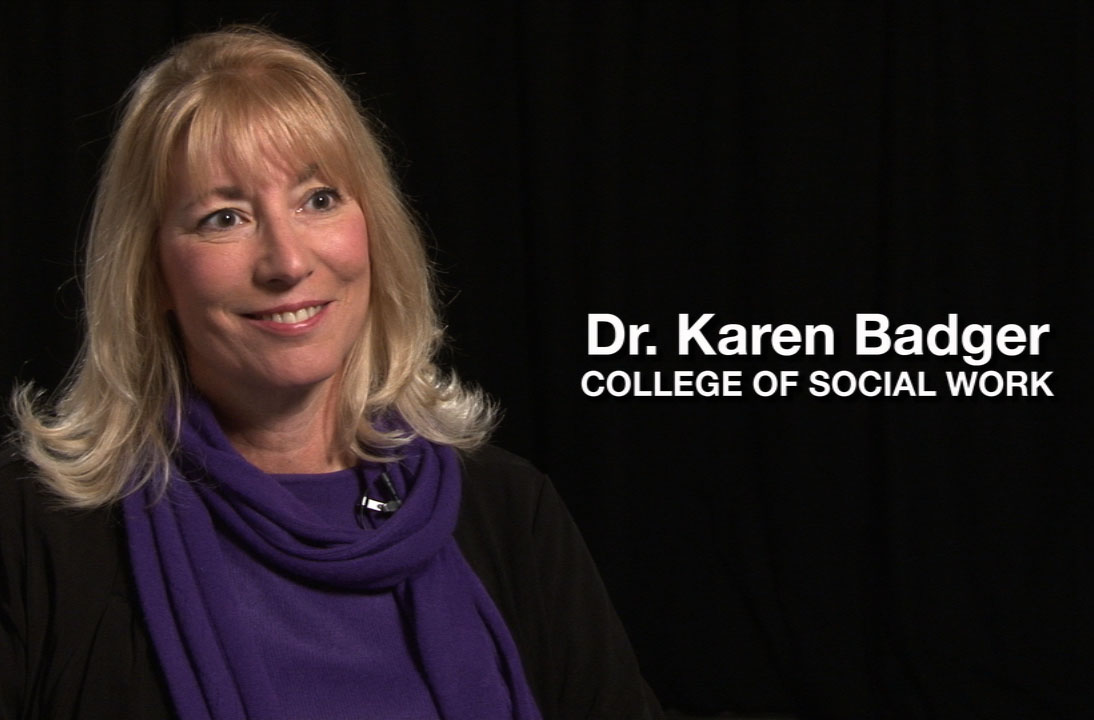 Karen Badger is an associate professor in the College of Social Work, focusing on social work in health care, occupational stress and secondary trauma. She is also an active administrator within the college, taking on the duties of the director of undergraduate studies and associate dean for academic and student affairs.
Karen Badger is an associate professor in the College of Social Work, focusing on social work in health care, occupational stress and secondary trauma. She is also an active administrator within the college, taking on the duties of the director of undergraduate studies and associate dean for academic and student affairs.
“What I really enjoy about teaching is being able to help students connect what they are learning in the classroom with what they would be doing in the profession,” said the social worker. “And I really like the energy of the students, their ideas; I like the interaction. I like being able to find creative ways to present material to have them engaged, and I like the, 'ah ha' moments. Some of those are small, some of those are big turning points. The most rewarding thing about teaching for me is being able to help students realize their potential,” Badger said.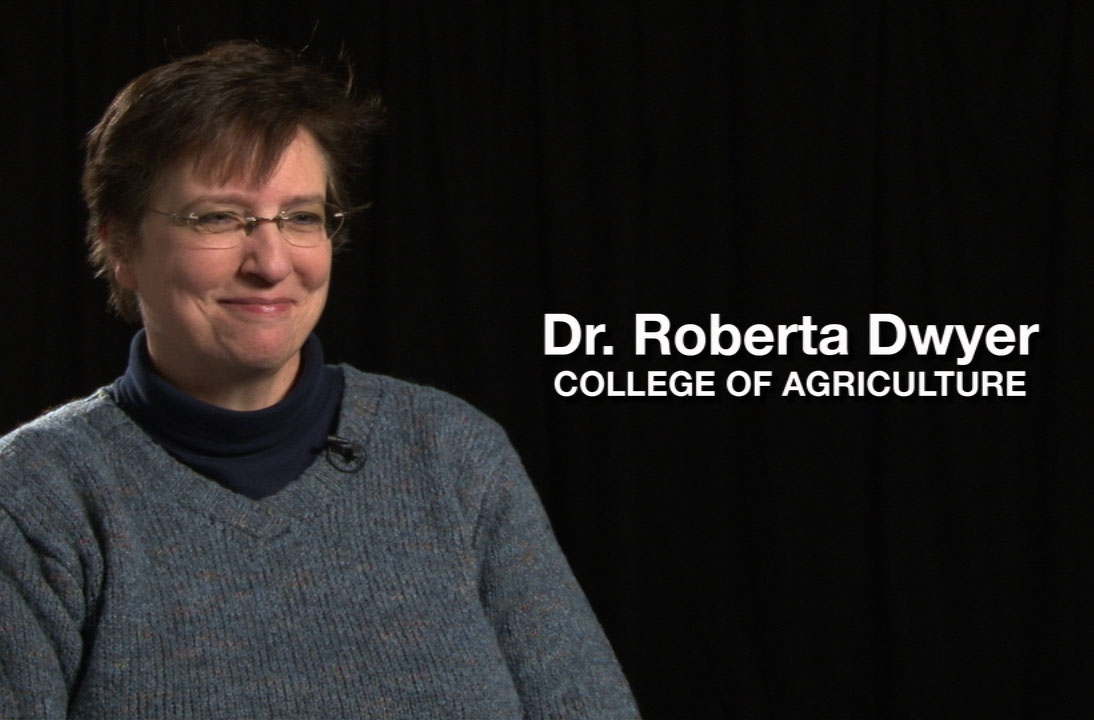
Roberta Dwyer is a professor of veterinary science in the College of Agriculture. She has been involved with biosecurity and equine infectious diseases for more than 20 years. Integrated with biosecurity, she is involved in the development of disaster plans for veterinarians and animal owners.
Dwyer says the most rewarding part of being a teacher is “helping students get through the really rough patches in life. I just got an email last fall from a student who got into veterinary school, and she said, ‘Thank you for not giving up on me because you're the only teacher that told me I could do it.’ That still just sends little shivers down my spine,” she said.
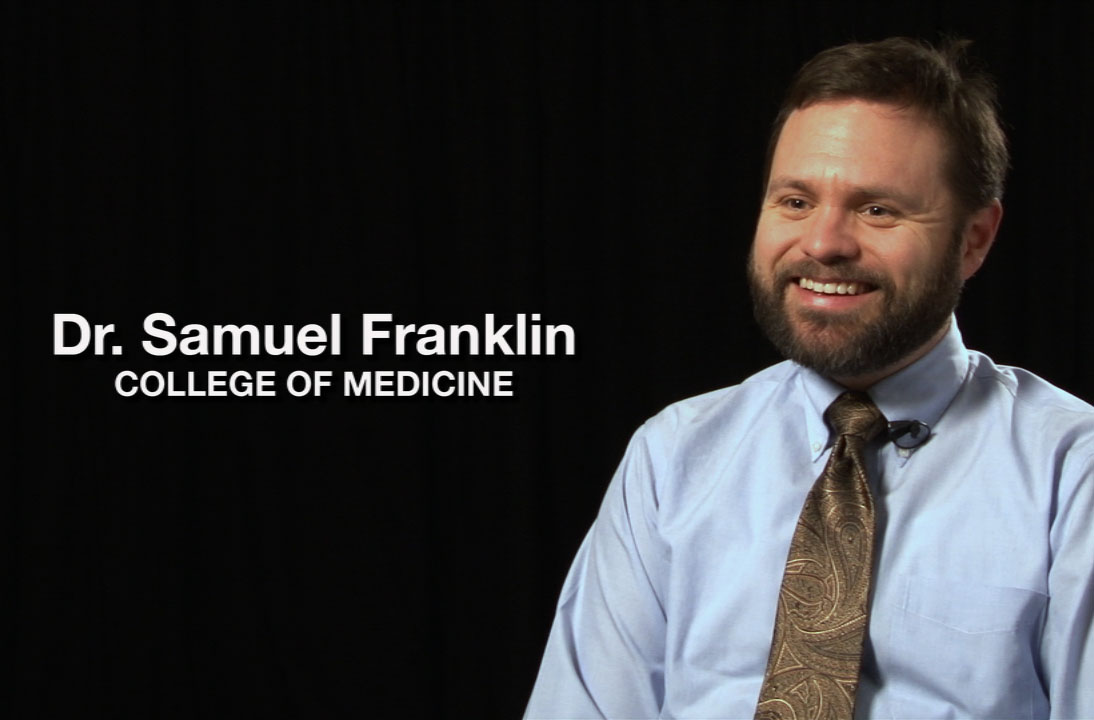 Samuel Franklin is an assistant professor of anatomy and neurobiology in the College of Medicine, focusing on medical education research. He received his doctorate at Wake Forest University School of Medicine and conducted postdoctoral training at the same institution. He is interested in the development of integrative teaching methods in anatomical education.
Samuel Franklin is an assistant professor of anatomy and neurobiology in the College of Medicine, focusing on medical education research. He received his doctorate at Wake Forest University School of Medicine and conducted postdoctoral training at the same institution. He is interested in the development of integrative teaching methods in anatomical education.
“I enjoy making connections,” Franklin said, “and I enjoy making or allowing, helping others make connections between things that they may or may not think are related, and when they make the connections, they begin to understand things better. I like watching people come to understand concepts, I like learning from others.”
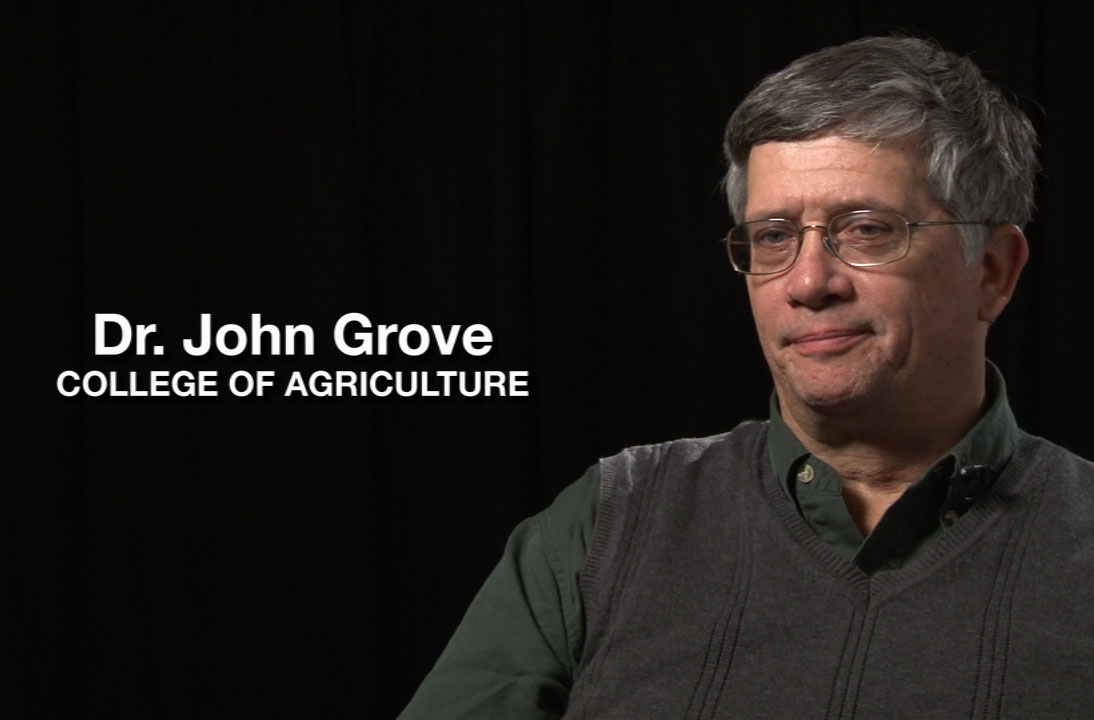
John Grove is a professor in the Department of Plant and Soil Sciences in the College of Agriculture. His specialty is the soil chemical and physical management across spatial scales. When he was surprised in his classroom by the award, he said, “It gives you a sense of accomplishment.”
“You teach because you want (students) to develop, at least in part, some of the passion that you have,” Grove said. “Teaching the next generation is critically important to what the university is and, of course, what it does. Research is important because it provides that new knowledge that I take to the classroom, so it enlivens the classroom. Nonetheless, the fundamental reason that you're here is to impart knowledge to that next generation that is going to take your place and the place of others."
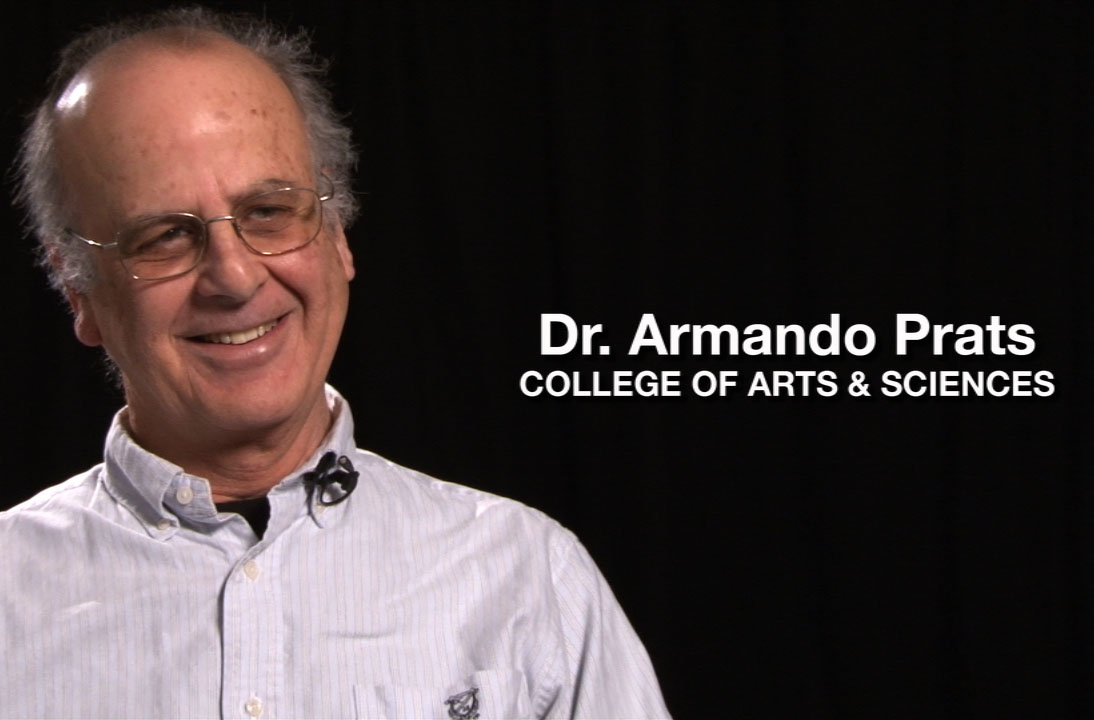 Armando Prats is a professor of English in the College of Arts and Sciences with specialties in film, the Western, Western history and mythology, and the image of native Americans in popular films.
Armando Prats is a professor of English in the College of Arts and Sciences with specialties in film, the Western, Western history and mythology, and the image of native Americans in popular films.
“There is something indescribably fulfilling about teaching. We leave them, a great deal of the time, transformed. We leave them enlightened to transform lives, to make other people’s lives inherently better. What that spark does,” Prats said, “it’s not that it tells you that you are such a great teacher, that you enlightened this person, but that you and that student now have a common humanity. I would think that is what teaching should be about."
Gerald Smith is an associate professor of History with research interests in African-American history, education and the civil rights movement. He is a co-editor of the “Kentucky African American Encyclopedia” a book-length study of the history of African Americans in Kentucky.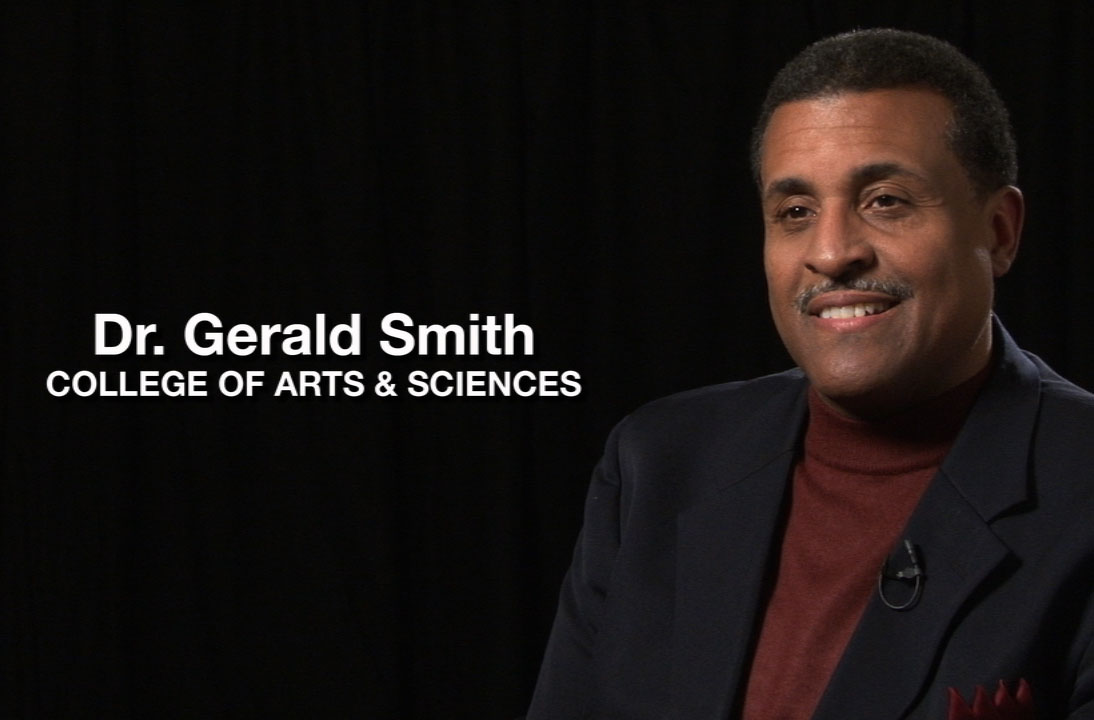
"I teach because it gives me the opportunity to integrate my research and my teaching in a classroom over the course of several years,” said Smith. “As my research changes and as students who come in over the course of the years change, it gives me the opportunity to share that body of knowledge with them and to impart the wisdom and the experiences that I've had over the course of the years from one generation to the next. The most rewarding part is clearly watching students develop over time, but the challenge is to bring a certain level of enthusiasm and appreciation for history that is contagious. With that, the students connect with that vibe and before they realize it, they're hooked as well.”
